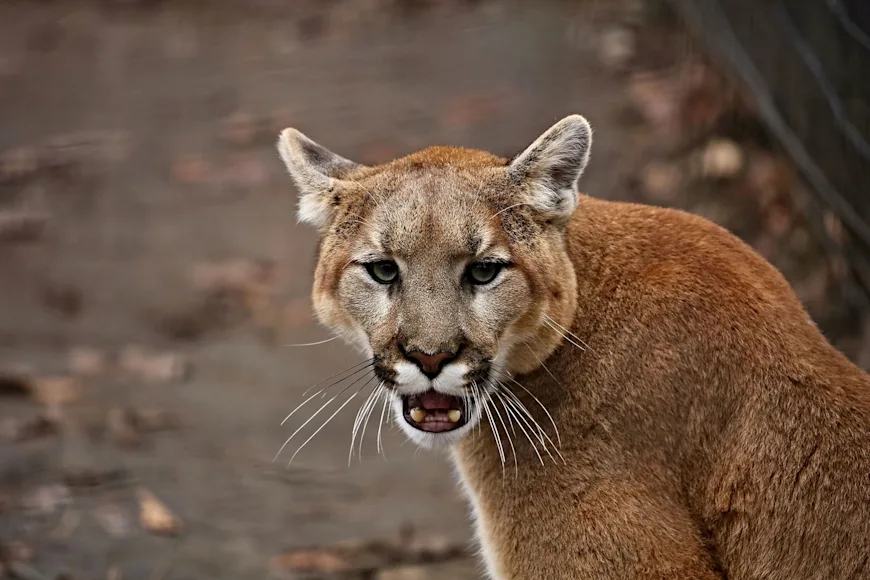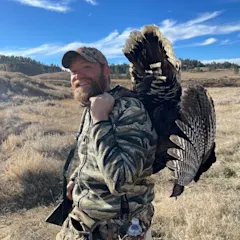Back in December 2023, Colorado Parks & Wildlife (CPW) released five gray wolves on public land west of Denver. The highly-publicized wolf release was roundly criticized by hunters and conservationists, largely because it was mandated by a narrowly-passed ballot initiative with minimal to no input from the state's wildlife biologists. Now, Colorado's voting public will be tasked with handling another wildlife management issue that typically falls within the purview of trained biologists—and the result could be an outright ban on hunting for mountain lions and bobcats.
Last Wednesday, July 31, Colorado's Secretary of State announced that an anti-hunting group called "Cats Aren't Trophies" has collected enough signatures to place Proposition 91 on the upcoming fall ballot. In the proposition's opening section, cat hunting opponents attempt to define trophy hunting—a notoriously ambiguous and subjective label—as a practice "used primarily for the display of an animal's head, fur, or other body parts, rather than for the utilization of meat." It goes on to say that Colorado's houndsmen should be forced to abandon their pursuit of mountain lions because the hunt "serves no socially acceptable or ecologically beneficial purpose, and fails to further public safety."
According to filings obtained by the Colorado Sun, "Cats Aren't Trophies" submitted more than 147,000 signatures to secure a spot on the November ballot. The group is well funded as well, having raised more than $414,000 dollars from in-state and out-of-state donors since the start of the year. Additional filings submitted on August 1 show that the group has spent a total $335,000 promoting its proposed hunting ban to the public.
Dan Gates is the Executive Director of Coloradans for Responsible Wildlife Management (CRWM), a local non-profit that's fighting to oppose the proposed hunting ban. In a recent interview with Field & Stream, Gates said that Colorado's mountain lion populations are robust. "We’ve got somewhere between 4,400 and 5,000 mountain lions in the state of Colorado, and before they became a big game species, there were less than 200 on the landscape," Gates said. "Back then, they were considered a nuisance species, and conservation-minded sportsmen and women took them from that nuisance list and put them into the big game category."
CPW's current mountain lion season has been in place since 1965. It runs from from Nov. 25 to March 31. Hunters used to pursue lions in April as well, but the agency nixed that season earlier this year.
Bobcats, which were also opened to hunting and trapping in 1965, are common in Colorado. Recent studies estimate a population of some 12,000 individual bobcats in the state, and the International Union for the Conservation of Nature (IUCN) lists them as a species of least concern.
Though Proposition 91 calls for a ban on lynx hunting and trapping, no such seasons exist in the Centennial State. "They say that they want to make sure that if lynx are ever de-listed here in Colorado, that no one will ever be able to harvest them," Gates said. "But when they’re already talking about banning something before it’s even legally acceptable to hunt it, that shows that their intent doesn’t have anything to do with science. It doesn’t have anything to do with management. It has to do with emotion and subjective messaging."
Since September, Gates and CRWM have been hyper-focused on countering Cats Aren't Trophies' anti-hunting narrative with a message of their own. They've produced a series of short videos that emphasize the pivotal role that hunting plays in the longterm conservation of iconic species, like elk and mountain lions. Through this, and other outreach, they hope to educate the general public about the merits of the North American Model for Wildlife Conservation.
According to Gates, the language used in Proposition 91 is intentionally misleading because it implies that law abiding houndsmen are engaged in wanton waste, which is illegal in Colorado. "People think of 'trophy hunting' as mounting something on the wall and then leaving the meat in the field to rot, and that's just a fantasy," he said. "By law, both big game and small game species have to be processed for consumption. As hunters, we utilize the meat. All the other stuff—wether it's the feathers, the hide, or the antlers—that's just a byproduct of that utilization."
Read Next: The Lion Dogs
Gates describes CRWM's mission as part of a nationwide effort with the goal of reaching a target audience that extends well beyond the hunting community. "We've circled the wagons and created the necessary mechanism to stand up and defeat this," he said. Wether or not this outreach will pay off remains to be seen. "They'll probably get this hunting ban on the ballot," he predicted back in March. "They didn't go this far and spend this much money to fail, but neither did we."


